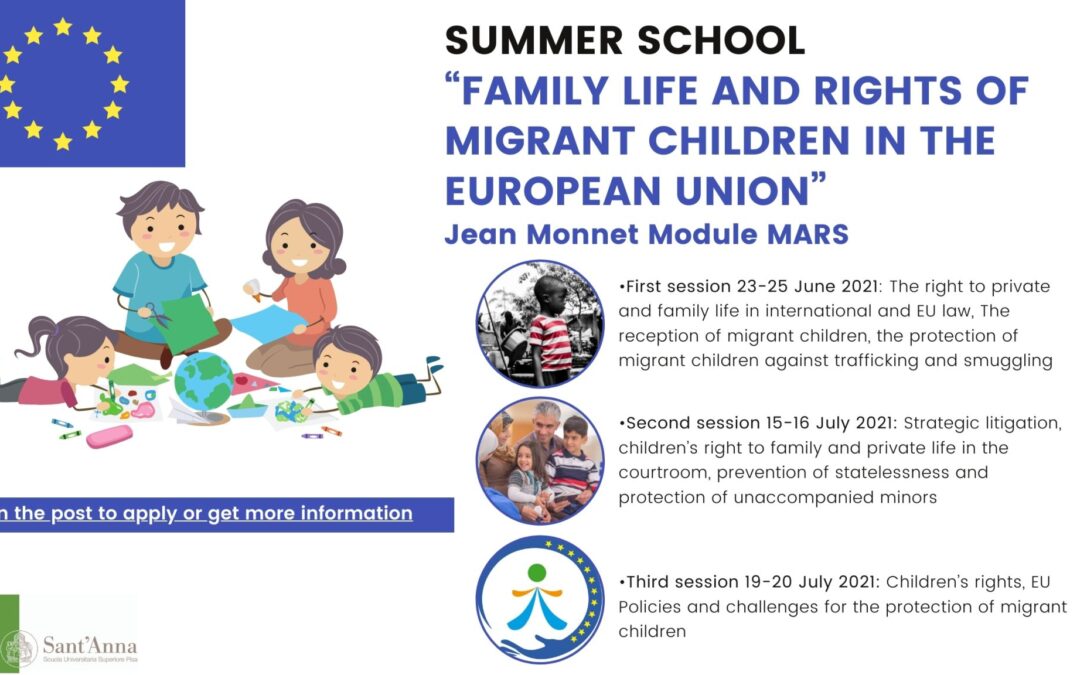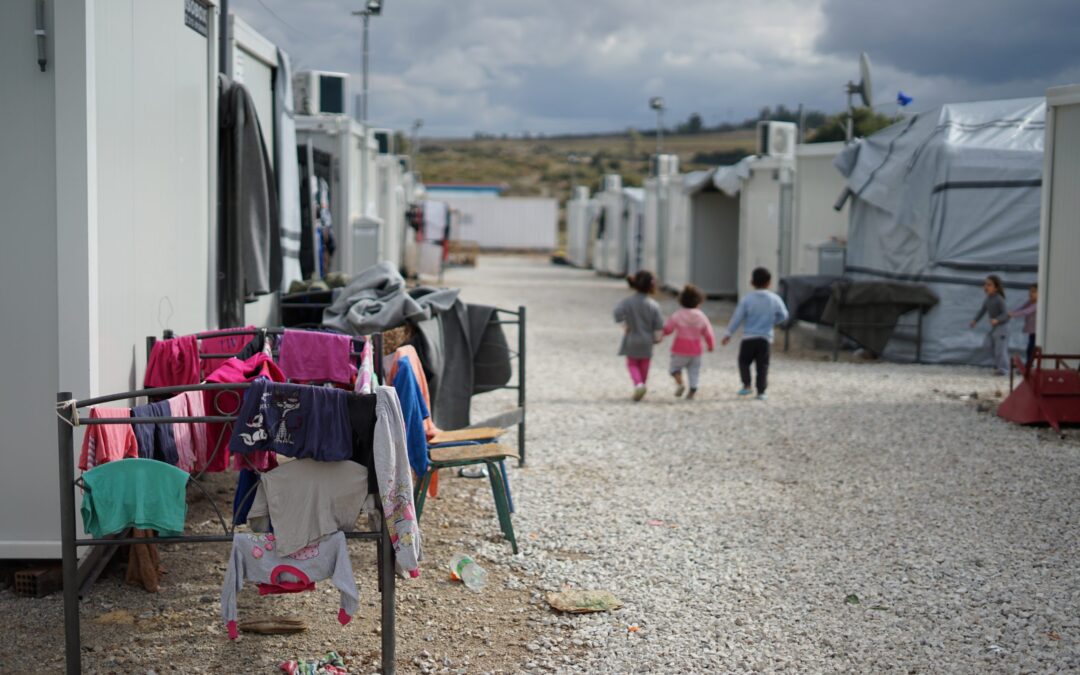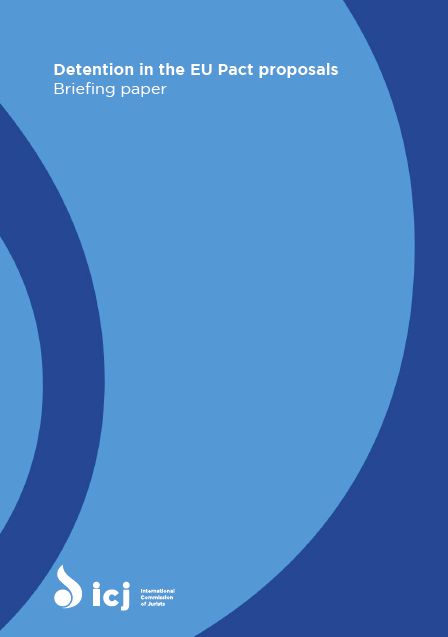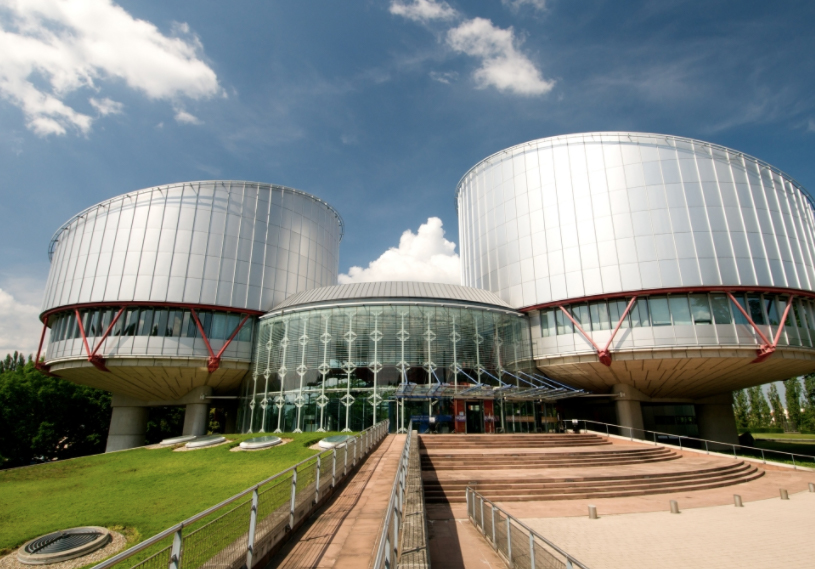
Jun 4, 2021 | Agendas, Events, News
Scuola Superiore Sant’Anna, in collaboration with the International Commission of Jurists (ICJ), is organizing an online Summer School on the “Family life and rights of migrant children in the European Union” on 23-25 June, 15-16 and 19-20 July 2021.
It will provide training on the right to private and family life of migrant children within the international and regional framework of human rights and EU law, and current challenges in protecting the rights of migrant children, including in the context of Covid-19. The lectures of the Summer School will also touch upon the EU’s Pact on Migration and Asylum of 2020 and the EU Strategy on the Rights of the Child 2021-2024.
The Summer school will be held in English and is open to professionals, academics, and students who would like to deepen their knowledge of the topic. Participants will be provided with relevant teaching materials which were developed in the FAIR project coordinated by the ICJ on fostering migrant children’s access to rights.
Enrolment must be made by application submitted online by 15 June 2021 and is limited to 40 participants. An early bird discount applies to candidates who register before 6 June 2021, while an exemption from enrolment fees applies to 5 foreign students who are beneficiaries of international protection (refugees and subsidiary protection holders).
See more details and the full agenda here: MARS summer school_brochure

Jun 2, 2021 | Agendas, Events, News
On Thursday 3 June 2pm CET, the International Commission of Jurists (ICJ) together with Saskia Bricmont, Greens/EFA MEP, will hold an online event on immigration detention of children in the EU, the current situation and implementation of the legal framework in EU countries. The event will consider ways forward and alternatives to detention, including in light of the new proposals of the EU Pact on Migration and Asylum and EU strategy on the rights of the child.
The event is organised on the occasion of the launch of the CADRE project (“Children’s Alternatives to Detention protecting their Rights in Europe”), seeking to promote the expansion, implementation and improvement of viable and effective alternatives to detention for migrant children in full respect of their rights in the EU, co-ordinated by the ICJ in partnership with seven national and international partners:
See the full agenda of the event here: CADRE_public launch event agenda
To register please fill in the form online here. Registration closes 3 pm CET 2 June.

Jun 1, 2021 | News, Publications
European legislators should reject the Screening Regulation proposal and revise the amended Asylum Procedures Regulation proposal that were proposed as part of the European Union Pact on Migration and Asylum. These proposals would result in the prolonged detention of migrants and refugees, said the International Commission of Jurists (ICJ) in a briefing paper released today.
“These proposals would result in impermissible detention of people not having committed any crime including those fleeing danger and seeking safety in the European Union in violation of international law, and would be especially cruel for children, who should not be detained at all,” said Karolína Babická, Legal Adviser at the ICJ.
The briefing paper published today comments on two proposals of the EU Pact, focusing on the impact of the new proposals on immigration detention and deprivation of liberty, providing recommendations to co-legislators in relation to the proposed EU Screening Regulation and the border procedures that would be established by the amended Asylum Procedures Regulation proposal.
If the proposals are adopted as proposed by the European Commission, prolonged immigration detention will inevitably result in practice, due to a lack of safeguards in the legislation. And there is a high risk of systematic detention at the border in breach of international human rights and refugee law.
In order to comply with international law obligations, detention during the screening and border procedures must only be used as a measure of last resort, applicable only in well-defined situations and based on a case-by-case assessment of the situation, while privileging alternatives to detention. Furthermore, children, as well as people in need of special procedural guarantees or with special reception needs, must not be detained.
The new EU Pact on Migration and Asylum developed by the European Commission was communicated by the Commission to other EU institutions on 23 September 2020. The Pact proposes a set of new legislation and amends existing proposals. The proposed Regulations will be directly applicable in EU Member states when adopted.
See the full briefing paper here: Detention in the EU Pact proposals-briefing-2021-ENG

May 26, 2021 | News
The ICJ welcomes the ruling by the European Court of Human Rights in the case of B.B.W. and others v. the United Kingdom, setting out important guarantees against mass surveillance online.
On 25 May, the Grand Chamber of the European Court of Human Rights issued its final ruling in this case in which the ICJ intervened. The case deals with the human rights implications of the system of intelligence mass surveillance of the United Kingdom, which was unveiled by the revelations of Edward Snowden.
“The judgment sets out clear guarantees to be respected in order to carry out bulk interception of communications”, said Massimo Frigo, Senior Legal Adviser for the ICJ Europe and Central Asia Programme, “it is a first important step towards ensuring that protection of human rights is as effective online as it is offline. All Member States of the Council of Europe must now ensure that their surveillance systems respect these minimal guarantees.”
In its judgment, the Court recognised the difference between surveillance of individual communications and bulk interception of communications with the use of metadata and introduces a set of procedural guarantees to be respected at initial, intermediary and final stages of bulk data surveillance.
The Court found that these guarantees also apply when a State receives intelligence based on bulk interception carried out by foreign States.
The judgment, however, does not fully address the implications for human rights of States’ participation in close transnational surveillance cooperation such as the system of the “Five Eyes” including the UK, USA, Canada, Australia and New Zealand.
“These transnational surveillance systems entail a higher level of responsibility by States under international human rights law in light of the high risk of bypassing national remedies”, said Massimo Frigo, “We hope the Court will be able to address these important issues in the future to strengthen the protection of human rights online in Europe.”
Contact:
Massimo Frigo, ICJ Senior Legal Adviser, t: +41797499949, e: massimo.frigo(a)icj.org

May 12, 2021 | Advocacy, News
The International Commission of Jurists (ICJ), the Turkey Litigation Support Project (TLSP) and Human Rights Watch (HRW) have intervened before the European Court of Human Rights in a case concerning the arrest and pre-trial detention of Turkish opposition politician Selahattin Demirtaş, on a series of charges relating to the exercise of his freedom of political expression. The applicant alleges that his pre-trial detention was arbitrary and unlawful.
In the intervention, the organisations underline that restrictions on freedom of expression, widespread detention and criminal prosecution under expansive anti-terrorism laws, and the impact on democratic debate and rights protection are now well documented in Turkey. This is particularly striking, and the repercussions serious, when opposition politicians are targeted for their expressions of opinion and engagement in democratic debate.
The interveners address:
- the nature and application of anti-terror criminal laws in Turkey and the implications for protection of the right to liberty (Article 5(1) of the European Convention on Human Rights (ECHR)) and freedom of expression (Article 10 ECHR) and for the limitation on use of restrictions on rights (Article 18 ECHR); and
- the effectiveness of the individual application procedure to the Turkish Constitutional Court as a remedy in detention cases, in particular in cases concerning the exercise of freedom of expression, in light of delays, the erosion of the independence and impartiality of the judiciary, and non-compliance of lower courts with the Constitutional Court’s decisions that protect Convention rights.
Full text of the intervention can be downloaded here.

May 5, 2021 | News
The ICJ condemns the Danish authorities’ practice of revoking residence permits of Syrian refugees, mainly women and older men, on the false premise that Syria is safe for refugees’ return. Partly due to a lack of diplomatic relations with Syria, Denmark cannot forcibly remove refugees and instead detains them.
These practices should end immediately, individual assessments must be carried out in each case, and those detained pending removal should be immediately released, the ICJ said.
“International law requires that before any forcible removal, an individualized assessment of risks for each individual must be made and the principle of non-refoulement must be respected at all times,” said Róisín Pillay, ICJ Europe and Central Asia Director.
The principle of non-refoulement, prohibiting States to transfer anyone to a country where he or she faces a real risk of persecution or other serious human rights abuses, is a fundamental principle of international law and one of the strongest limitations on the right of States to control entry into their territory and to expel aliens as an expression of their sovereignty, as set out in Article 33 of the Geneva Refugee Convention and Article 3 of the Convention against Torture.
“Immigration detention pending removal is permitted only for as long as removal proceedings are in progress, and only if such proceedings are executed with due diligence and there is a realistic prospect that removal will be carried out within a reasonable time. Denmark’s practices fail to meet these standards as set out in international and EU law,” Pillay added.
At least 189 Syrians have had applications for renewal of temporary residency status denied since last summer, a move the Danish authorities said was justified because of a report that found the security situation in some parts of Syria had “improved significantly”. In March, ECRE and the Danish Refugee Council reported that the geographical scope of reassessments of cases of Syrian nationals has been expanded to include cases from greater Damascus with hundreds of cases set to be reassessed by the Appeals Board in 2021.
“The ‘improved situation’ assessment in Syria does not reflect the reality on the ground and runs counter to assessments of the UN, the European Parliament and other countries,” said Róisín Pillay.
On 11 March, the European Parliament adopted a resolution on the conflict in Syria which “(r)eminds all Member States that Syria is not a safe country to return” for refugees, and “calls on all EU Member States to refrain from shifting national policies towards depriving certain categories of Syrians of their protected status, and to reverse this trend if they have already applied such policies.” The EP also opposed any “normalization of diplomatic relations with the Syrian regime as long as there is no fundamental progress on the ground in Syria, with clear, sustained and credible engagement in an inclusive political process.”
The UNHCR considers that “changes in the objective circumstances in Syria, including relative security improvements in parts of the territory, are not of a fundamental, stable and durable character so as to warrant cessation of refugee status on the basis of Article 1C(5) of the 1951 Convention.” Furthermore, “in light of continued conflict, insecurity, and contamination with explosive remnants of war (ERW); severe concerns about the rule of law and widespread human rights violations and abuses, including against returnees; fragmented community relations and a lack of genuine reconciliation efforts; massive destruction and damage to homes, critical infrastructure and agricultural lands; and deepening economic and humanitarian crises, which are compounded by the COVID-19 pandemic, UNHCR continues to call on states not to forcibly return Syrian nationals and former habitual residents of Syria, including Palestinians previously residing in Syria, to any part of Syria, regardless of whether the area is under control of the Government or under control of another state or non-state entity. ”
“The Danish authorities’ assessment of the situation in Syria refers solely to the situation of wide-spread violence and bombing in some parts of Syria, in total disregard of the continuing hostilities in other parts of the country, as well as Syria’s abysmal human rights record, including widespread and systematic use of torture and other ill-treatment, arbitrary detention and enforced disappearances,” said Said Benarbia, ICJ MENA Director.
Read the full statement here.










